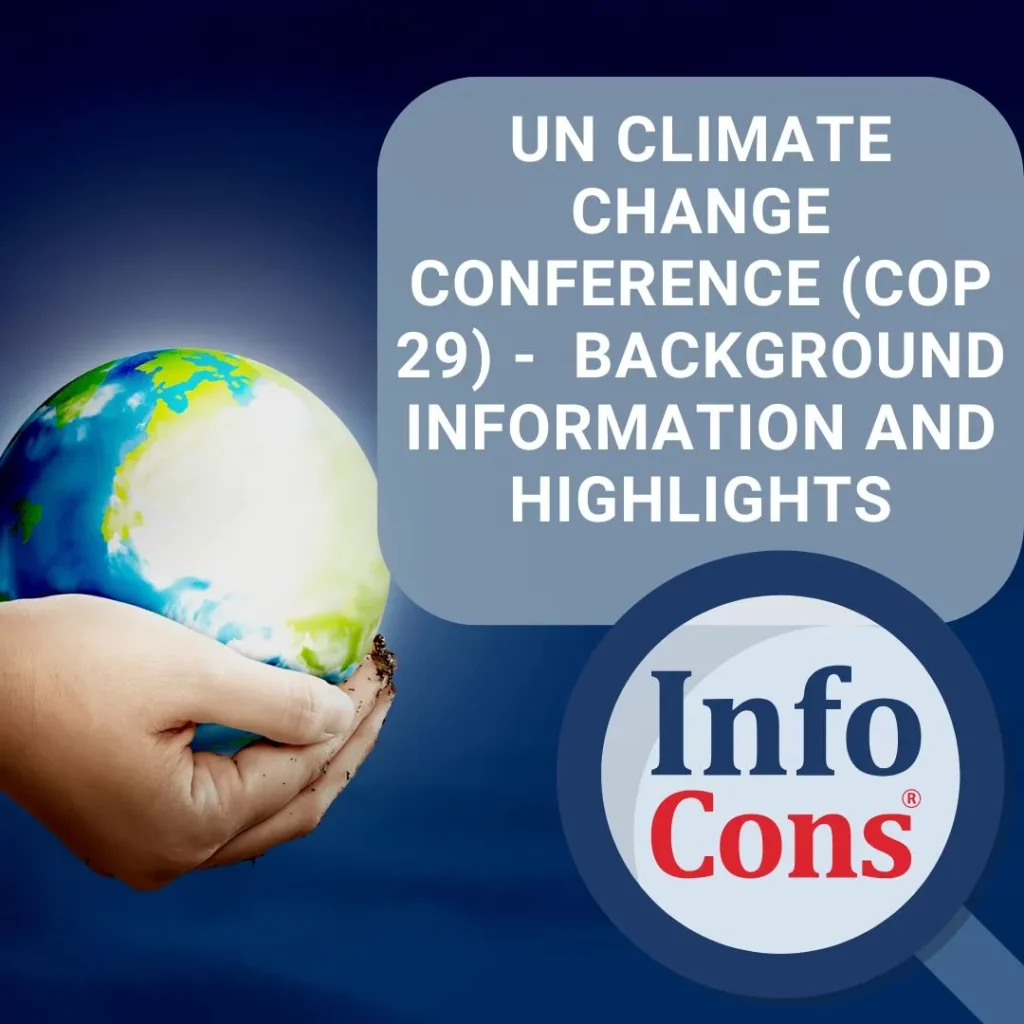
The UN Climate Change Conference, known as the COP (Conference of the Parties), is the world’s most significant international platform for climate negotiations and policy-making. As the threat of climate change intensifies, the annual COPs serve as a crucial arena where nations collaborate to confront the global climate crisis. With representatives from almost every country, these conferences aim to shape a sustainable future for all. In order to fully understand the relevance of COP 29 , it’s important explore the background, significance, and key aspects of the COP meetings, as well as the pivotal role they play in global climate action.
What is COP ?
The term “COP” stands for “Conference of the Parties”, a reference to the countries and Parties that have ratified the landmark 1992 United Nations Framework Convention on Climate Change (UNFCCC). There are currently 198 Parties to the UNFCCC, making the COP the only truly global climate decision-making forum. These annual gatherings provide an opportunity for countries to assess progress in dealing with climate change, negotiate solutions, and set the direction for future efforts.
Read also : Did you know …. you should ask yourself these questions before you post ?
Who Attends COPs ?
COPs bring together tens of thousands of participants, making them some of the largest and most inclusive international meetings in the world. Attendees range from world leaders and country delegates to representatives from businesses, civil society, local communities, and the media. This diversity is essential, as climate change affects all sectors of society. Involving such a wide range of stakeholders ensures that diverse perspectives and expertise inform global climate strategies, fostering cooperation across borders and sectors.
The Decision-Making Process at COPs
Decisions made at COPs are vital global agreements that set the course for addressing the climate crisis. These agreements often revolve around critical actions, such as limiting global temperature rise, reducing greenhouse gas emissions, transitioning to renewable energy sources, and supporting vulnerable communities in adapting to climate impacts. Negotiations can be complex and require consensus among nearly 200 countries, reflecting the challenges of aligning diverse national interests toward a common goal. The outcomes, however, have the potential to influence climate policies and practices worldwide.
Read also : Border Security – ETIAS Requirements for Visa-Free Travel to the European Union
Landmark Agreements from Past COPs
Over the years, COPs have produced some of the most important agreements in the history of climate action. Two of the most notable are:
- The Kyoto Protocol (adopted at COP 3 in 1997): This was the first legally binding treaty that committed developed countries to reduce greenhouse gas emissions. It set specific targets for industrialized nations, recognizing their greater historical responsibility for emissions.
- The Paris Agreement (adopted at COP 21 in 2015): A landmark accord that brought all countries together in a common cause to undertake ambitious efforts to combat climate change. It aims to limit global warming to well below 2°C, with efforts to keep it to 1.5°C above pre-industrial levels.
In addition to these milestones, the 2023 UAE Consensus marked a significant turning point, as countries agreed, for the first time, to a global transition away from fossil fuels—a commitment that has the potential to reshape the global energy landscape.
Read also : 6 Creative and Refreshing Activities for Kids on Scorching Hot Days
The Role of the Host Country and COP Presidency
Each year, the COP is hosted by a different country, chosen from a specific UN region. The host nation plays a crucial role as it not only provides the venue but also holds the COP Presidency, guiding the negotiations and encouraging ambitious commitments from participating countries. The Presidency’s leadership is often key to achieving consensus and ensuring that the outcomes are as impactful and inclusive as possible. The host country’s priorities can influence the focus of the negotiations, highlighting specific regional or global issues, and shaping the tone of the conference.
The COPs are more than just high-profile meetings; they are the heart of global climate governance. These conferences have been instrumental in bringing nations together, forging international agreements, and setting the global agenda for climate action. As climate change continues to pose unprecedented challenges, the role of COPs in uniting the world around ambitious climate targets has never been more critical. The decisions made within these forums will determine the planet’s trajectory, shaping a future that can either mitigate the worst impacts of climate change or succumb to them. As we look ahead to future COPs, including COP 29, the world watches with anticipation, hoping for stronger commitments, greater cooperation, and tangible action.
Source : United Nations Climate Change
InfoCons – European Organization for Consumer Protection and Promotion of Programs and Strategies , a full member of the World Organization Consumers International , founding member of the Federation of Consumer Associations , and member of ANEC .